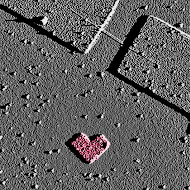¨Nanotechnology may revolutionize the rules and possibilities of drug discovery and change the landscape of pharmaceutical industries.¨ I was reading today in NanoLetters (full article here). I don't think it may. I'm sure it will.
As for now, there are over two dozen nanotechnology-based therapeutic products approved by Food and Drug Administration (FDA) for clinical use, and more are in clinical trials. Those are the so-called first generation nanotherapeutics, most of them composed of a nontargeted delivery system (e.g., liposomes and polymers) and a drug.
The sad truth is we will need more and more medicine, as our society is growing older, environment more polluted, life more stressful and so on.. And among our civilizational diseases there's the C-word, we would never want to hear. In recent years we have progressed in our ways of dealing with cancer, we do have ways to cure it, including surgery, chemo and radio therapy. Still those methods are far from perfect, the main drawback being that they affect the whole system, not only the tumor. And still much effort is put to find new ways and to save human lives.
Help may come from quite an unexpected direction - according to results published last two months it is possible to remove tumors with help of nanosize objects.
All is based on the so called enhanced permeability and retention (EPR) theory.
This theory postulates that certain sizes of particles (100-130nm) tend to accumulate in tumor tissue much more than in normal tissues because a tumor’s newly formed blood vessels are usually abnormal in form and architecture, poorly aligned with wide fenestrations, and lack a smooth muscle layer and tumors usually lack effective lymphatic drainage. Based on this theory, it is expected that nanoparticles with would be able to accumulate in a solid tumor and thus deliver a larger amount of chemotherapeutic drugs to tumors compared to normal tissues.
According to that we may try to produce the second-generation nanotherapeutics, combining nanoparticles with cancer combating drugs and then delivering it directly to the tumor, more effectively and without any harm to other tissues.

